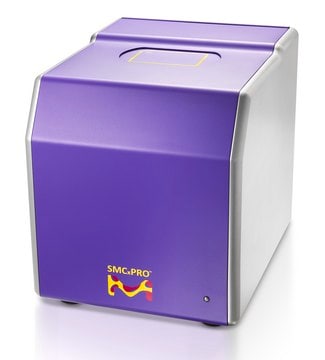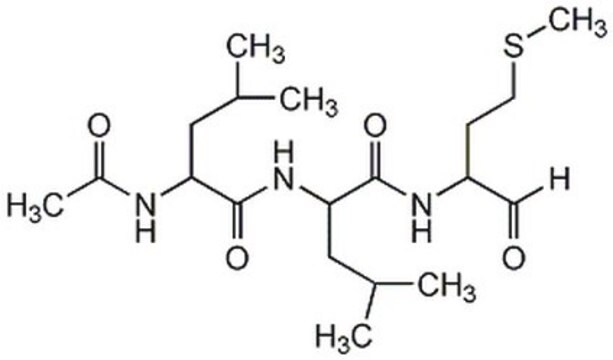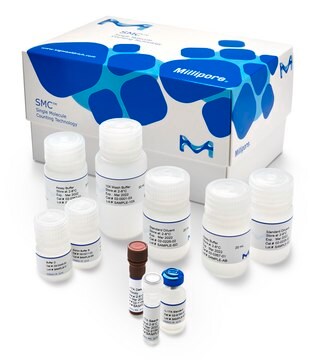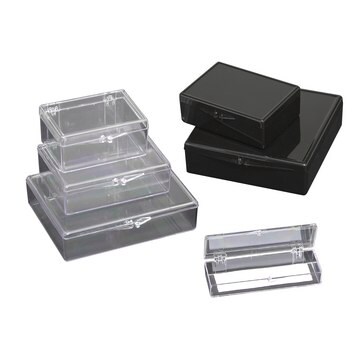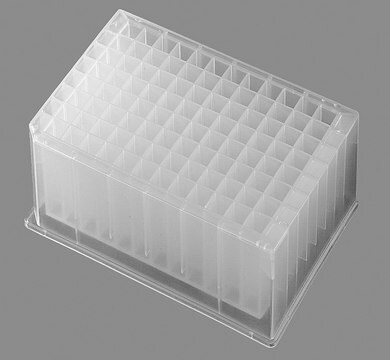03-0205-00
SMC® Human TDP-43 Immunoassay Kit
kit sufficient for 96 wells
Sinónimos:
TDP-43 Single Molecule Counting kit, TDP-43 immunoassay kit, TDP-43 ultra-sensitive immunoassay, Transactive Response DNA-binding Protein 43 immunoassay kit
About This Item
Productos recomendados
Quality Level
usage
kit sufficient for 96 wells
species reactivity
human
packaging
pkg of 1 ea
manufacturer/tradename
SMC®
parameter
100 μL sample volume (CSF)
12.5 μL sample volume (serum and plasma)
assay range
intra-assay cv: ≤7%
(n=5)
linearity: 80-120%
recovery range: 80-120%
sensitivity: 5.21 pg/mL
standard curve range: 2.6-6,000 pg/mL
inter-assay cv: ≤11%
(n=3)
technique(s)
single molecule counting: suitable
input
cerebrospinal fluid (CSF)
plasma
serum
shipped in
wet ice
storage temp.
2-8°C
General description
Research Category:
Neuroscience
neurological
Research Sub-Category:
Alzheimer′s Disease
Aging
Nervous System
Neurodegenerative Diseases
Neurofilament & Neuron Metabolism
Neuronal & Glial Markers
Neuroregenerative Medicine
Neuroscience
Technique(s)
SMC® : High sensitivity protein biomarker detection immunoassay
Specificity
Application
Features and Benefits
- Accurate and reproducible performance on the state-of-the-art SMCxPRO® ultrasensitive immunoassay system
- Compatibility with automated liquid handling
Legal Information
Disclaimer
signalword
Danger
Hazard Classifications
Acute Tox. 3 Dermal - Acute Tox. 4 Inhalation - Acute Tox. 4 Oral - Aquatic Chronic 3 - Eye Irrit. 2 - Repr. 1B
Storage Class
6.1D - Non-combustible acute toxic Cat.3 / toxic hazardous materials or hazardous materials causing chronic effects
flash_point_f
Not applicable
flash_point_c
Not applicable
Certificados de análisis (COA)
Busque Certificados de análisis (COA) introduciendo el número de lote del producto. Los números de lote se encuentran en la etiqueta del producto después de las palabras «Lot» o «Batch»
¿Ya tiene este producto?
Encuentre la documentación para los productos que ha comprado recientemente en la Biblioteca de documentos.
Nuestro equipo de científicos tiene experiencia en todas las áreas de investigación: Ciencias de la vida, Ciencia de los materiales, Síntesis química, Cromatografía, Analítica y muchas otras.
Póngase en contacto con el Servicio técnico
